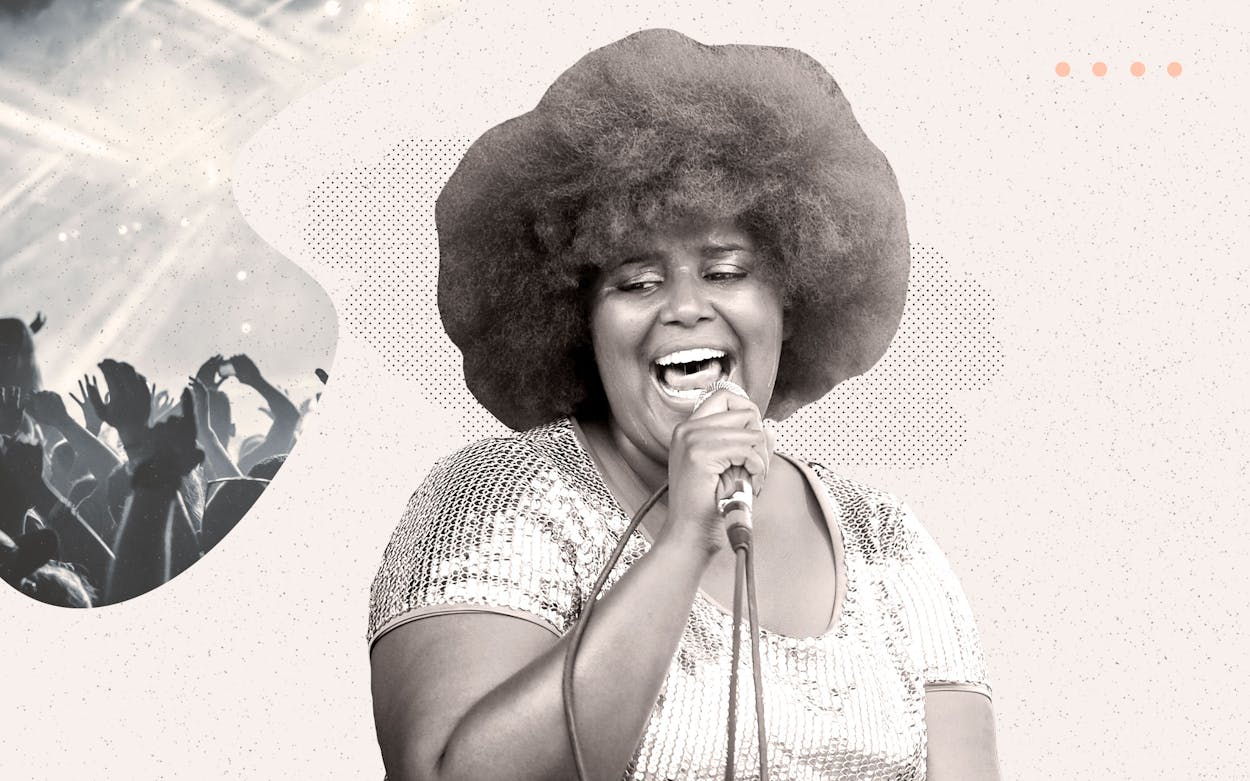The vibe that I got from everybody at the 2017 Women’s March is that women are pretty much fed up. It’s been a very interesting year since President Donald Trump got elected, but I think the Bill Cosby allegations were a catalyst too; that was really hurtful when it first came out because he had been the perfect image of a father to a lot of kids, especially those in the black community. Harvey Weinstein’s harassment was a little different because in addition to hearing about his bad behavior, it was shocking to learn that people knew about it and that instead of telling the police, they felt it was better to just tell female actors not to work with him.
Still, I’ve been inspired. In my field, there’s just been a strong sense of women sticking together more than ever—which has been really amazing and beautiful to see, though I wish it had just naturally happened rather than evolving out of something terrible.
Sexism in the music industry is not new to me. Sometimes, when I was getting ready to perform, people would question my right to be backstage because guys at the club assumed I was a groupie, even though a lot of times the men who were backstage were just there drinking free beer. And back in the day, I was told that if you’re a woman representing yourself you can almost guarantee that you’re not going to get booked. Someone suggested that it would be better for a female performer to pretend she’s a male manager. So I tried that. I made a fake email address and pretended to be a guy representing Kam Franklin. And I ended up getting booked a lot that way. When I would show up for my gigs, people would ask about my manager and I would be like, “Oh, he got sick, so you’ll deal with me.” This was the case for about two years until I was finally well known enough to represent myself.
Music festivals have their own gender problems. You look at these lineups sometimes, and you know people will try to justify their thin lineup of women by saying, “Oh yeah, there’s just not that many female artists” or, “We’re just booking whoever’s the best at music.” This is bullshit. There are so many amazing female artists out there, and these lineups are often 85 to 95 percent men with maybe one female artist or band. Sometimes a festival rep will say they don’t want acts that are too similar. Could you imagine telling a man, “Sorry, we can only have one indie rock band, you’re all wearing Levi’s and that’s pretty overdone so we can’t have that”? I think audiences would pay more attention to these disparities if more musicians spoke up about racial and gender inequality in the industry, but it’s hard to be the first one. It’s hard to be the troublemaker.
Over the next few years, I think we are going to see some very dramatic changes within our society in the way that women are treated. I look forward to that and I hope that it applies to all industries, so that the coming generation can treat each other with a better level of respect. I feel like I’m in the middle of this weird women’s renaissance that’s one hundred years late.
To see resources about female mentorship, getting involved in local issues, and what to do if you experience sexual harassment, read here.
More from this collection
The Women’s Voices Project
In a series of as-told-to conversations, two dozen Texas women talk about gender, work, and what needs to change for women in their home state. Read their perspectives here.
- More About:
- Music








